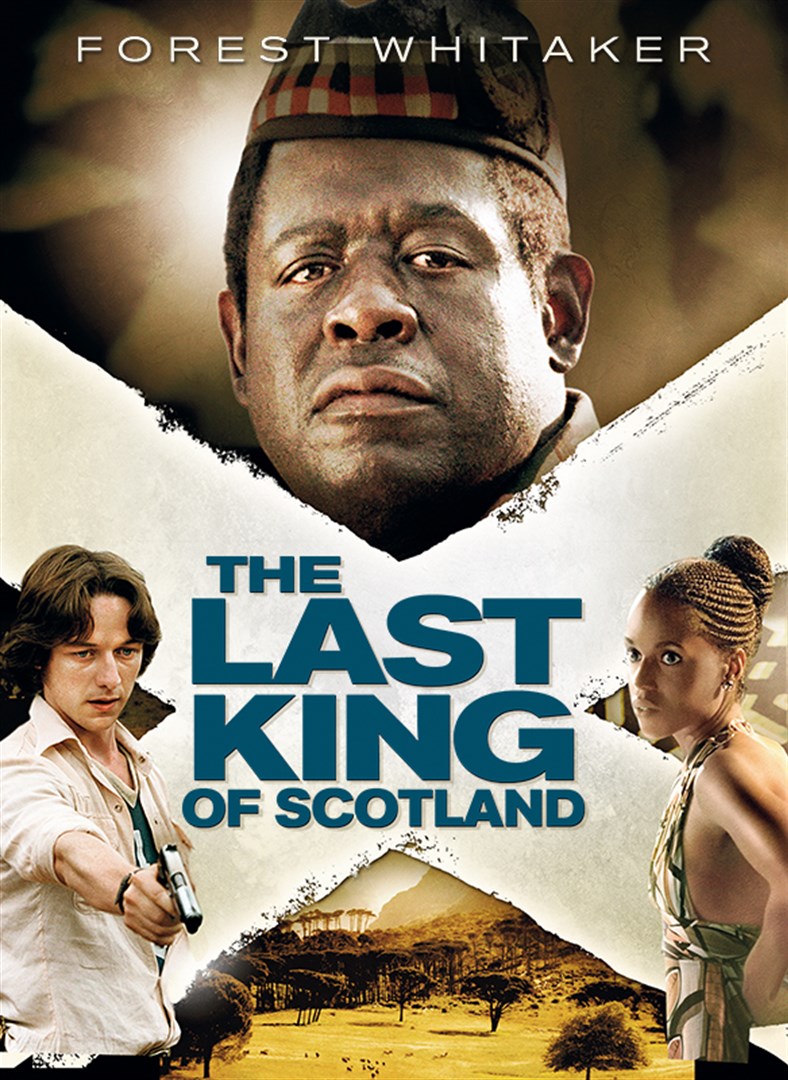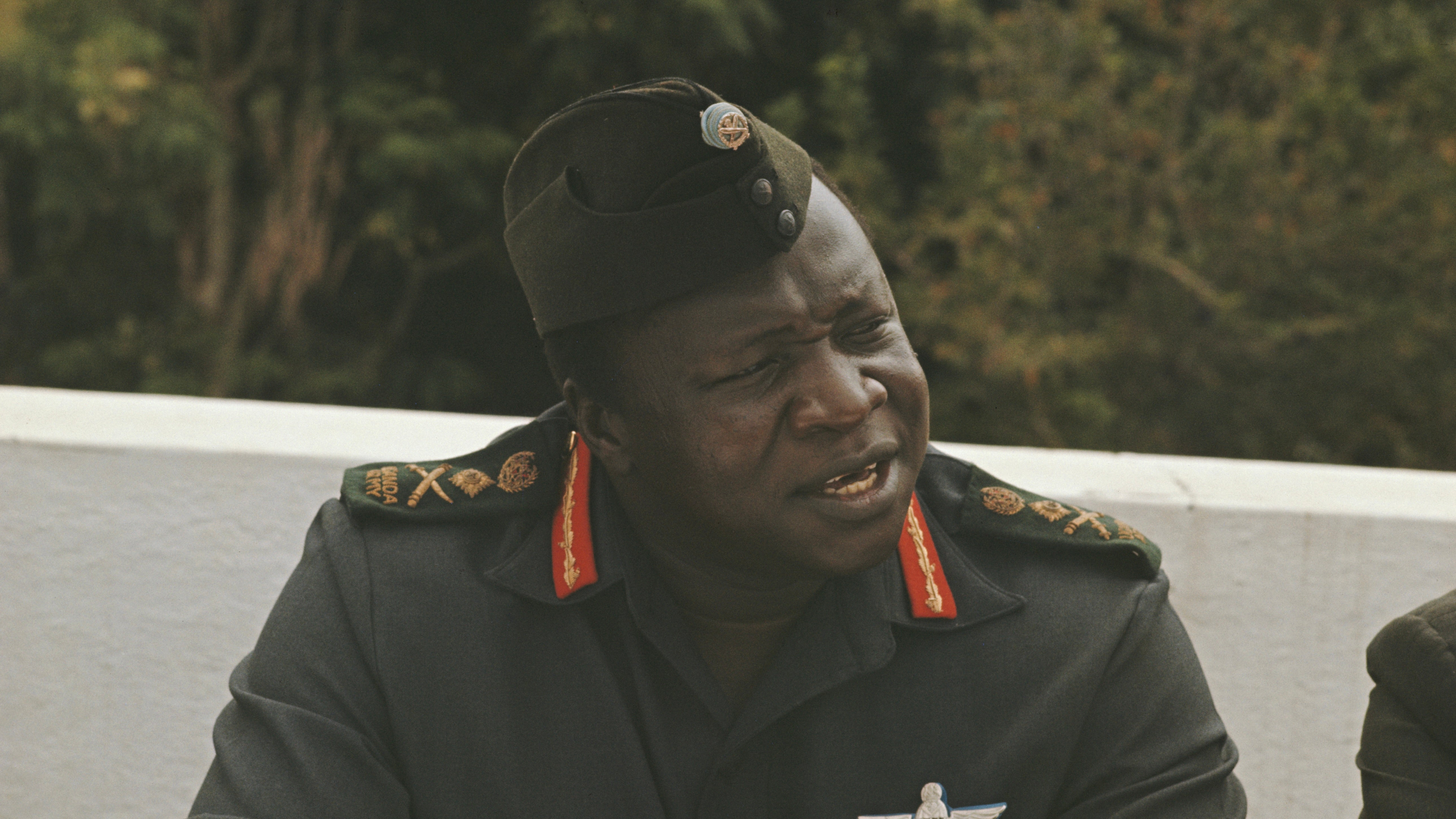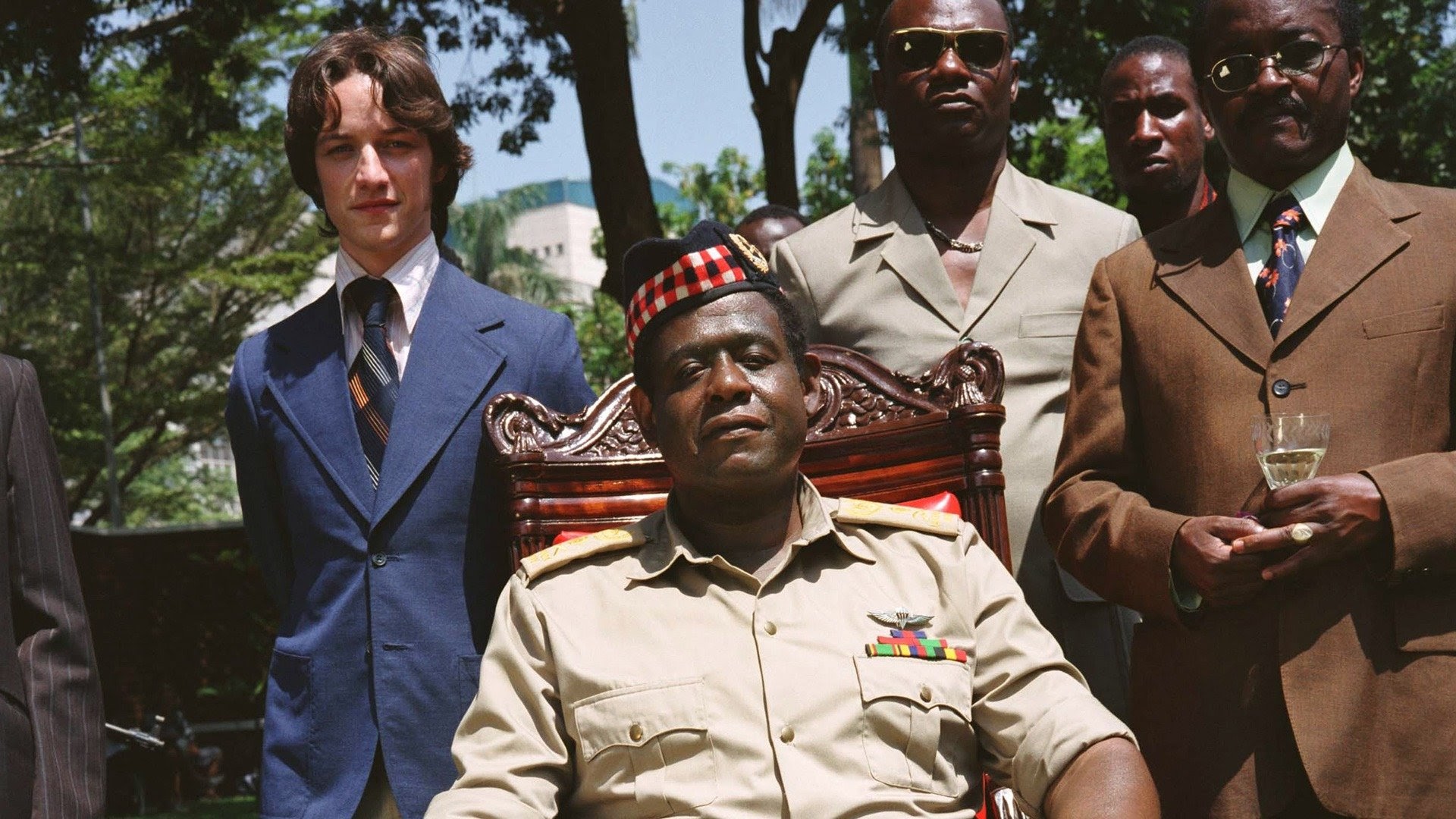What Makes The Last King Of Scotland A Must-Watch Movie?
Based on Giles Foden’s novel, The Last King of Scotland offers a haunting look at the reign of Idi Amin. Forest Whitaker’s performance as the Ugandan dictator is unforgettable, blending charm and menace with expert precision.
Aug 19, 202444.6K Shares665.7K Views

Released in 2006, The Last King of Scotlandis an unflinching depiction of one of history’s most notorious dictators, Idi Amin. Directed by Kevin Macdonald and adapted from Giles Foden’s novel, the film uses a mix of fact and fiction to explore the complex and chilling dynamics of power, manipulation, and moral ambiguity. Forest Whitaker’s performance as Idi Amin is the centerpiece, delivering a portrayal that is both charismatic and terrifying, a masterclass in character acting.
Set in 1970s Uganda, the story delves into the fictional experiences of a young Scottishdoctor, Nicholas Garrigan (James McAvoy), as he becomes entangled in Amin’s orbit. Through its intense storytelling and sharp performances, the film brings to life the political chaos and human cost of Amin’s rule.
An Innocent Abroad In The Heart Of Darkness
The narrative begins with Nicholas Garrigan, a recently graduated Scottish doctor, seeking adventure abroad. Landing in Uganda just as Idi Aminseizes power, Garrigan inadvertently becomes the dictator’s personal physician after a chance encounter. Initially charmed by Amin’s charisma and vision for Uganda, Garrigan is slowly drawn into the dictator’s inner circle.
As Amin’s true nature is revealed, his paranoia, brutality, and erratic decision-making, the young doctor finds himself trapped. The film masterfully builds tension as Garrigan navigates the treacherous waters of Amin’s regime, culminating in a harrowing sequence of events that expose the dictator’s terrifying capacity for violence.
Idi Amin - A Seductive And Terrifying Madman
If there’s ever been a film entirely reliant on its lead actor, The Last King of Scotlandis undoubtedly it. Forest Whitaker delivers an outstanding and complex portrayal of Idi Amin, the Ugandan military commander who seized power from President Milton Obote through a coup in 1971.
Over the following eight years, Amin entertained the world with his bullish eccentricities, from awarding himself a CBE to claiming kingship over Scotland. However, behind his almost comical rhetoric lay a regime marked by terror, forced expulsions, and mass killings - shaped in part by Amin’s long tenure in the British imperial army.
This layered complexity offers a treasure trove for dramatists, which is why Amin’s story has inspired numerous portrayals, including two swiftly made TV films - Raid on Entebbeand Victory at Entebbe(both 1976) - that responded to the Israeli commando raid on Kampala’s airport. Barbet Schroeder’s 1974 documentary, Général Idi Amin Dada: Autoportrait, also tackled Amin’s persona, albeit at the cost of forced edits after French hostages were taken in Kampala.
Kevin Macdonald’s first venture into fictional storytelling, co-written by celebrated screenwriter Peter Morgan (The Queen), benefits from hindsight and the bold choice of being filmed in Uganda. This decision lends the film a tangible authenticity, with cinematographer Anthony Dod Mantle capturing the rich, vibrant hues of Uganda’s landscapes, historical architecture, and local culture. By using color-saturated 16mm film, Mantle creates a visual texture that feels both immersive and immediate, avoiding a detached or overly formal tone.
What unfolds is an intriguing, if not entirely cohesive, blend of fact and fiction, as envisioned in Giles Foden’s novel. The story opens in 1971 Scotland, introducing the fictional character Nicholas Garrigan (James McAvoy), a fresh medical school graduate seeking to escape the monotony of suburban life. Spinning a globe to decide his destination, Garrigan lands on Uganda, where he arrives just as Amin ascends to power.
A chance meeting between the two men leads Garrigan to become Amin’s personal doctor - a role he accepts with an excitable, almost naive enthusiasm that grows increasingly grating as the story progresses. Garrigan’s reckless ignorance becomes a running commentary on unchecked ambition and youthful arrogance, perhaps deserving its own term: "as green as a Garrigan."
Western audiences are no strangers to being guided through African narratives by white protagonists - a pattern seen in films like Shooting Dogs, The Constant Gardener, and Blood Diamond. Here, however, Garrigan’s perspective serves a more nuanced purpose. Amin’s fascination with British culture and his perverse take on colonial values come to the forefront. British journalists entertained his humorous antics, while a British businessman, Bob Astles, acted as one of his closest advisors.
In this context, Garrigan is a symbolic device - his indulgence in Amin’s opulent lifestyle and his obliviousness to the dictator’s atrocities mirror the audience’s conflicted enjoyment of Whitaker’s mesmerizing performance and the 1970s nostalgia evoked by the film. When the true horror of Amin’s regime finally surfaces, it is stark, violent, and unrelenting, focusing on two harrowing incidents that leave a lasting impression.
Garrigan’s naivety and his reckless immersion in the luxuries of Amin’s Uganda, coupled with his eventual realization of Amin’s monstrous nature, can sometimes strain credibility. However, Simon McBurney’s portrayal of a cunning British diplomat adds an insidious layer to the narrative, highlighting the precarious balance of European interests in 1970s Uganda.
It is unfortunate that the film’s climax shifts focus from Amin’s terrifying presence to an uninspired escape sequence centered on Garrigan, undercutting Whitaker’s powerful performance. Despite these flaws, Macdonald’s transition from documentaries such as One Day in Septemberand Touching the Voidto fictional drama is largely successful. The Last King of Scotlandis a compelling work, elevated by Whitaker’s extraordinary portrayal, which alone makes the film a triumph.
The Clash Of Innocence And Brutality
James McAvoy’s portrayal of Garrigan offers a lens through which the audience experiences the seduction and horror of Amin’s world. His transformation from an idealistic adventurer to a trapped accomplice is handled with nuance, making his moral struggles relatable and impactful.
Release Details
- Release date:January 12, 2007
- Duration:123 minutes
Cast And Crew
- Director:Kevin Macdonald
- Screenwriters:Jeremy Brock, Peter Morgan
Cast
- Forest Whitaker- Idi Amin: The charismatic yet brutal dictator of Uganda.
- James McAvoy- Dr. Nicholas Garrigan: A young Scottish doctor who becomes Amin’s personal physician.
- Kerry Washington- Kay Amin: Idi Amin’s third wife, whose tragic story intertwines with Garrigan’s.
- Simon McBurney- Stone: A British diplomat representing foreign interests in Uganda.
- Gillian Anderson- Sarah Merrit: The wife of a British doctor running a rural clinic where Garrigan initially works.
- Adam Kotz- Dr. Merrit: Sarah’s husband and the head of the rural clinic.
Pros And Cons
Strengths
- Whitaker’s unforgettable, award-winning performance.
- Immersive cinematography and authentic production design.
- A gripping narrative that balances drama and historical commentary.
Weaknesses
- The fictionalized focus on Garrigan at the expense of Ugandan voices.
- Some historical liberties that oversimplify complex realities.
- A climax that prioritizes Garrigan’s escape over a deeper exploration of Amin’s fall.
A Triumph Of Performance Over Narrative Depth
Despite some flaws, The Last King of Scotlandremains a cinematic triumph. It succeeds as both an intense political drama and a showcase of masterful acting, particularly by Forest Whitaker. From Amin’s charismatic speeches to his chilling outbursts, the movie features famous movie scenesthat leave a lasting impression on audiences. The film’s lasting impact lies in its ability to provoke thought about the dangers of unchecked power and moral complicity.
See Also: Traditional Scottish Games
FAQs About The Last King Of Scotland
What Is The Last King Of Scotland About?
The film explores the rise and rule of Ugandan dictator Idi Amin through the fictional story of a Scottish doctor who becomes his personal physician.
Is The Last King Of Scotland Based On A True Story?
The film is inspired by true events but features fictional elements, including the character of Nicholas Garrigan.
How Accurate Is The Film In Portraying Idi Amin?
Forest Whitaker’s performance captures Amin’s charisma and brutality, though some events and characters are fictionalized for dramatic effect.
Why Is Forest Whitaker’s Portrayal Of Amin Significant?
Whitaker’s performance humanizes and terrifies, making Amin a deeply complex figure. This earned him an Academy Award for Best Actor.
What Themes Does The Film Explore?
Key themes include power and corruption, moral responsibility, and the lingering effects of colonialism on African politics.
Conclusion
The Last King of Scotlandis a gripping exploration of power, ambition, and moral compromise. Anchored by Forest Whitaker’s transformative performance, it offers a chilling look at the human cost of tyranny. While its fictional narrative has drawn criticism, it effectively highlights the complexities of Idi Amin’s character and reign.
This film is not just a portrayal of a dictator but a cautionary tale about the consequences of unchecked power and the moral dilemmas of those who enable it. It remains a must-watch for its historical resonance and cinematic brilliance.
You Might Like: Scotland's Eco-Tourism And Ways To Explore Sustainably
Latest Articles
Popular Articles

